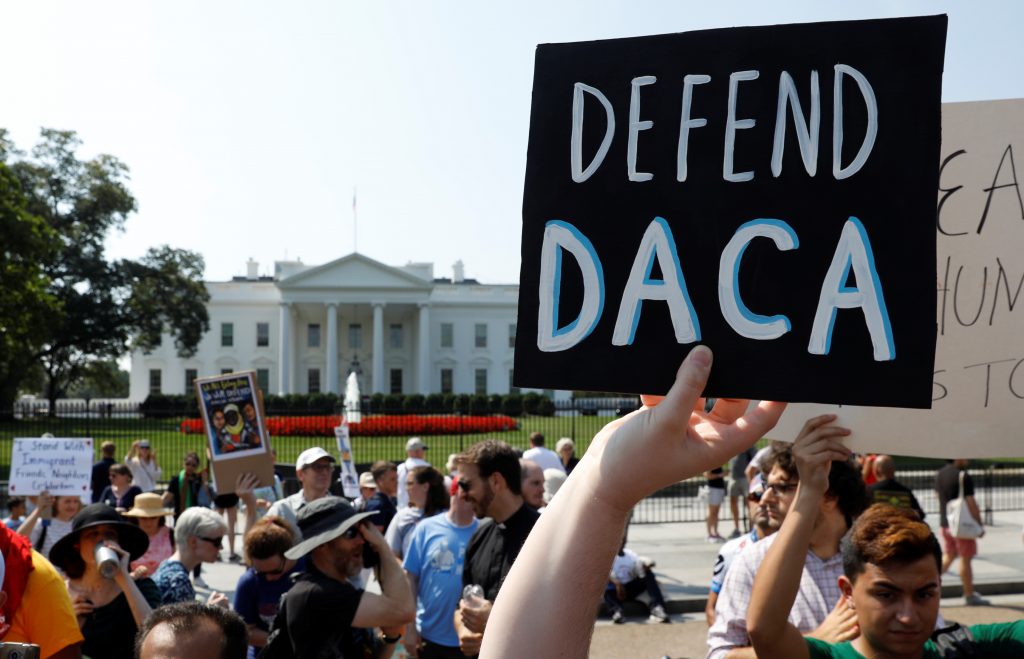Deferred Action for Childhood Arrivals



What is DACA?
Deferred Action for Childhood Arrivals (DACA) – On June 15, 2012, the Secretary of Homeland Security announced that certain people who came to the United States as children and meet several guidelines may request consideration of deferred action for a period of two years, subject to renewal. They are also eligible for work authorization. Deferred action is a use of prosecutorial discretion to defer removal action against an individual for a certain period of time. Deferred action does not provide lawful status.
Get more information here.
Can I still apply for DACA?
Currently, USCIS is not accepting requests from individuals who have never before been granted deferred action under DACA. Due to federal court orders on Jan. 9, 2018 and Feb. 13, 2018, USCIS has resumed accepting requests to renew a grant of deferred action under DACA.
Get more information on the court orders here.
Who can file for a renewal of DACA?
You may request renewal of DACA if you met the initial 2012 DACA guidelines and you:
- Did not depart the United States on or after Aug. 15, 2012, without advance parole;
- Have continuously resided in the United States since you submitted your most recent DACA request that was approved;
- Have not been convicted of a felony, a significant misdemeanor, or three or more other misdemeanors; and
- Do not otherwise pose a threat to national security or public safety.
Get more information here.
What were the initial 2012 DACA guidelines?
Requirements:
- Were under the age of 31 as of June 15, 2012;
- Came to the United States before reaching your 16th birthday;
- Have continuously resided in the United States since June 15, 2007, up to the present time;
- Were physically present in the United States on June 15, 2012, and at the time of making your request for consideration of deferred action with USCIS;
- Had no lawful status on June 15, 2012;
- Are currently in school, have graduated or obtained a certificate of completion from high school, have obtained a general education development (GED) certificate, or are an honorably discharged veteran of the Coast Guard or Armed Forces of the United States; and
- Have not been convicted of a felony, significant misdemeanor , or three or more other misdemeanors, and do not otherwise pose a threat to national security or public safety.
Get more information here.
Can Grads to Be help me renew my DACA?
Grads to Be may be able to connect you with reputable legal service providers who can help you with immigration related matters. Contact us to get more information.






